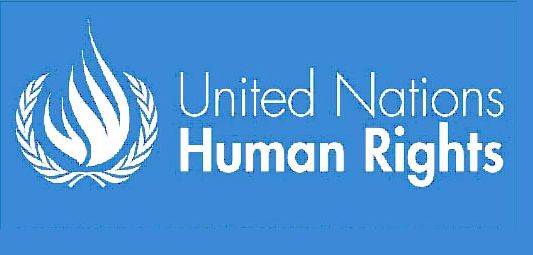The General Comment (see also here for remarks), finalised on 21 July 2011, constitutes an authoritative interpretation of the freedoms of opinion and expression guaranteed by Article 19 of the International Covenant on Civil and Political Rights (ICCPR). It is binding on more than 165 countries.
Document adopted after two years of discussions
UN NRC says that the document’s 54 paragraphs were drawn up  during two years of debate and consultations. In addition to hearing from governments, national human rights institutions, and academics, the committee received written and oral contributions from more than 70 NGOs, including the Open Society Justice Initiative.
during two years of debate and consultations. In addition to hearing from governments, national human rights institutions, and academics, the committee received written and oral contributions from more than 70 NGOs, including the Open Society Justice Initiative.
General Comment No 34 is adopted on the interpretation of the right to freedom of opinion and expression as protected by Article 19 of the ICCPR. The agreement of the General Comment marks a significant achievement for the Committee, whose members come from a range of national and cultural backgrounds.
The last General Comment on freedom of expression, issued in 1983, was only three paragraphs long.
Recognizes importance of new media
Article 19 welcomes the General Comment for its progressive and detailed elucidation of international law on freedom of expression. The General Comment reflects developments in law, practice and understanding of the right, as well as technological advances (notably the internet), since it last addressed Article 19 of the ICCPR through General Comment No 10 in 1983.
In particular, Article 19 welcomes the Committee’s clear statement that Article 19 of the ICCPR encompasses “a right of access to information held by public bodies.” This requires states to “proactively put in the public domain Governmental information of public interest …[and]… make ever y effort to ensure easy, prompt, effective and practical access to such information” (para 19).
y effort to ensure easy, prompt, effective and practical access to such information” (para 19).
The organisation also welcomes the recognition of the importance of new media and impact of information and communication technologies, such as internet and mobile based electronic information systems on freedom of expression. The General Comment recommends the states take all necessary steps to foster independence of these new media and ensure access of individuals to them (para 15).
Furthermore, the General Comment reinforces media freedom in numerous provisions and specifically indicates that “operation of websites, blogs or other internet-based, or other information dissemination system [sic], including systems to support such communication, such as internet service providers or search engines” (para 43), need to be compatible with paragraph 3 of Article 19 of the Covenant.
Advocacy of racial or religious hatred prohibited
Finally, Article 19 appreciates the efforts of the Committee in developing paragraphs 48 and 49 of the General Comment.
In particular, in paragraph 48 the Committee asserted that “prohibitions of displays of lack of respect for a religion or other belief system, including blasphemy laws, are incompatible with the Covenant, except in the specific circumstances envisaged in article 20, paragraph 2, of the Covenant”, which prohibits “any advocacy of nation al, racial or religious hatred that constitutes incitement to discrimination, hostility or violence.”
al, racial or religious hatred that constitutes incitement to discrimination, hostility or violence.”
Paragraph 48 reflects not only the Committee’s earlier jurisprudence, but also reinforces the position of other UN human rights bodies, notably the UN HRC which dropped any reference to “defamation of religions” in resolution 16/18 of April 2011 and the UN Special Rapporteurs on freedom of opinion and expression, freedom of religion or belief and racism, racial discrimination, xenophobia and related intolerance who condemned laws prohibiting “defamation of religions” and/or blasphemy because they are relied upon to persecute religious minorities and dissenters.
UN members encouraged to follow the Comment
Article 19 urges states to follow the General Comment as a minimum set of standards on the implementation of Article 19 of the ICCPR. ARTICLE 19 encourages non-state actors, including NGOs and the media, to support states in these efforts by drawing attention to ways in which state laws and practices fall short of these standards.
For more information please contact: Dr Sejal Parmar, Senior Legal Officer, sejal@article19.org or +44 20 7324 2513.
Related articles:
Israel: new anti-boycott law is a threat to freedom of expression
Tunisia: new Decree on Access to Administrative Documents adopted
Kazakhstan: unfulfilled pledges to protect freedom of expression
Ukraine: Access to information law adopted
English libel law – tool to silence journalists from other countries?
No frontiers, new barriers – free speech and attempts to stop it
EC encouraged enhancing freedom of expression rights to internet users
Five billion people in the world have the right to information





